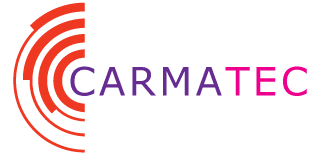In today’s rapidly evolving business landscape, traditional marketing approaches often fall short in addressing the diverse needs and expectations of modern consumers. As a result, businesses are increasingly turning to holistic marketing strategies to create more cohesive and impactful campaigns. In this comprehensive guide, we delve into the concept of holistic marketing, exploring its definition, key components, and the benefits it offers to businesses.
Understanding Holistic Marketing
Holistic marketing is a strategic approach that considers every touchpoint of a customer’s journey, aiming to create a unified and seamless experience across all channels and interactions. Unlike traditional marketing, which often focuses solely on promoting products or services, holistic marketing takes into account the broader context of the customer’s needs, preferences, and values.
At its core, holistic marketing is about fostering meaningful relationships with customers by understanding their motivations, desires, and pain points. It involves aligning various aspects of the business, including développement de produits, branding, communication, and customer service, to deliver a consistent and compelling experience at every stage of the customer lifecycle.
Key Components of Holistic Marketing
- Integrated Marketing Communications (IMC): Holistic marketing emphasizes the importance of integrating various communication channels, such as advertising, public relations, social media, and content marketing, to convey a cohesive brand message. By ensuring consistency across all touchpoints, businesses can reinforce their brand identity and build trust with customers.
- Customer Relationship Management (CRM): Effective Systèmes CRM play a crucial role in holistic marketing by enabling businesses to collect, analyze, and leverage customer data to personalize their marketing efforts. By understanding individual preferences and behaviors, businesses can tailor their offerings and communication to better meet the needs of their customers.
- Brand Consistency: Holistic marketing requires maintaining consistency in branding elements, including visual identity, messaging, and tone of voice, across all channels and platforms. Consistent branding helps to reinforce brand recognition and create a sense of trust and familiarity among customers.
- Customer Experience (CX): Central to holistic marketing is the concept of customer experience, which encompasses every interaction a customer has with a brand, from initial awareness to post-purchase support. By focusing on delivering exceptional experiences at every touchpoint, businesses can differentiate themselves from competitors and cultivate long-term customer loyalty.
Holistic Marketing vs. Market Segmentation
In today’s dynamic and competitive marketplace, both holistic marketing and market segmentation play important roles in helping businesses connect with customers and drive growth. While holistic marketing focuses on creating cohesive brand experiences that resonate with customers across all touchpoints, market segmentation enables businesses to target specific segments within the market more effectively.
Ultimately, the choice between holistic marketing and market segmentation depends on the unique goals, resources, and circumstances of each business. By understanding the distinctions between these two approaches and leveraging their respective strengths, businesses can develop more effective marketing strategies and cultivate lasting relationships with their target audience.
Contrasting Approaches
While both holistic marketing and market segmentation aim to enhance the effectiveness of marketing efforts, they differ in their scope, focus, and underlying philosophy:
- Champ d'application : Holistic marketing takes a broad and interconnected view of the entire business ecosystem, considering factors such as brand identity, customer experience, and organizational culture. In contrast, market segmentation focuses specifically on dividing the market into discrete segments based on identifiable criteria.
- Focus: Holistic marketing prioritizes creating cohesive and meaningful brand experiences that resonate with customers across all touchpoints. It emphasizes the importance of building long-term relationships with customers by understanding their needs and preferences holistically. Market segmentation, on the other hand, focuses on identifying and targeting specific segments within the market based on shared characteristics and behaviors.
- Philosophy: Holistic marketing is rooted in the belief that every aspect of the business, from product development to customer service, contributes to the overall brand experience. It emphasizes the interconnectedness of different marketing functions and advocates for alignment and integration across all channels. Market segmentation, meanwhile, is based on the premise that not all customers are alike and that targeting specific segments allows for more effective resource allocation and messaging.
Choisir la bonne approche
In determining whether to adopt a holistic marketing approach or utilize market segmentation, businesses should consider their goals, resources, and target audience:
- Holistic Marketing: Ideal for businesses seeking to build strong, enduring relationships with customers and differentiate themselves based on the overall brand experience. Holistic marketing requires a commitment to integration, alignment, and consistency across all aspects of the business.
- Market Segmentation: Suitable for businesses operating in diverse markets with distinct customer segments. Market segmentation allows for more targeted and tailored marketing efforts, enabling businesses to maximize the impact of their resources and better meet the needs of specific customer groups.
Benefits of Holistic Marketing
Enhanced Customer Understanding
Holistic marketing goes beyond superficial demographic data, aiming to deeply understand the needs, preferences, and aspirations of customers. By adopting this approach, businesses gain invaluable insights into their target audience’s behaviors, motivations, and pain points. Armed with this knowledge, marketers can tailor their strategies and offerings to resonate with customers on a profound level, thereby fostering stronger connections and loyalty.
Consistent Brand Experience
Consistency is key in holistic marketing. By ensuring that every touchpoint, from advertising to customer service interactions, reflects a unified brand identity and message, businesses can cultivate trust and credibility among their audience. A consistent brand experience reinforces brand recognition and instills confidence in customers, ultimately driving long-term brand loyalty and advocacy.
Integrated Marketing Efforts
Gone are the days when marketing channels operated in silos. Holistic marketing advocates for the integration of various marketing channels and tactics to create a seamless and cohesive brand experience. By synchronizing efforts across platforms such as social media, email marketing, content creation, and offline channels, businesses can amplify their reach and impact, maximizing the effectiveness of their marketing campaigns.
Personalized Customer Interactions
In today’s hyper-connected world, customers expect personalized experiences tailored to their individual preferences and needs. Holistic marketing leverages data-driven insights and advanced technologies to deliver targeted and relevant messaging to customers at every stage of their journey. By personalizing interactions, businesses can increase engagement, conversions, and customer satisfaction, driving sustainable growth and revenue.
Optimized Resource Allocation
Holistic marketing encourages a strategic and efficient allocation of resources by focusing on initiatives that yield the highest return on investment (ROI). By breaking down organizational silos and fostering collaboration between marketing, sales, and other departments, businesses can streamline processes, eliminate redundancies, and optimize resource allocation. This results in cost savings and improved efficiency, allowing businesses to allocate more resources towards initiatives that drive growth and innovation.
Long-term Sustainable Growth
Perhaps the most significant benefit of holistic marketing is its ability to lay the groundwork for long-term, sustainable growth. By prioritizing customer relationships, brand consistency, and integrated marketing efforts, businesses can build a solid foundation for success in the long run. Holistic marketing fosters a culture of continuous improvement and adaptation, allowing businesses to stay agile and responsive to changing market dynamics while maintaining a strong competitive edge.
Conclusion
holistic marketing represents a paradigm shift in how businesses approach marketing, emphasizing the importance of integration, consistency, and customer-centricity. By adopting a holistic approach, businesses can create more meaningful connections with customers, drive brand loyalty, and ultimately achieve sustained success in today’s competitive marketplace. Carmatec holistic marketing strategy aims to create a unified brand image, deliver exceptional customer experiences, and build strong relationships with clients to drive business success.













